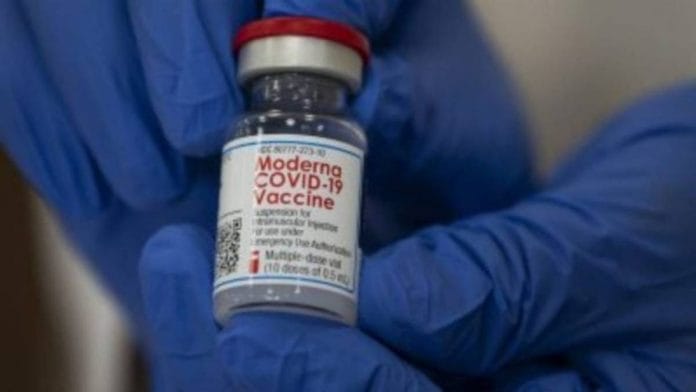New Delhi: With Africa short of vaccines required to inoculate a population of 1.2 billion people, a South African biotech company is attempting to replicate Moderna’s mRNA Covid vaccine — relying on the US company’s pledge that it will not enforce its patent during the pandemic — to meet the continent’s needs.
The firm, Afrigen Biologics and Vaccines, has been using publicly available information and advice from experts — including those from the US — to replicate the mRNA vaccine.
Its efforts come amid a new Covid variant, dubbed Omicron, being identified in South Africa.
Health experts have repeatedly warned that the virus is likely to evolve into fitter strains if any population is not sufficiently vaccinated. So far, less than six per cent of Africa’s population has been fully vaccinated.
Afrigen Managing Director Petro Terblanche told The Washington Post that if Moderna were to share information, the company could produce a replica within a year.
It may, however, take upto three years to replicate the technology without the information.
“It will be an interesting debate when we get to Phase 3, and we have a vaccine ready for low-income countries,” she said, adding that at that point Moderna says, “‘No, you can’t proceed’.”
The Afrigen team is now preparing to develop the first complete lab sample, which they will then compare to Moderna’s version. The company also wants to make the vaccine less expensive than Moderna, while also not requiring freezing in storage. The latter may be a significant challenge since mRNA vaccines are unstable at room temperature.
Moderna, the US-based company that developed the world’s first mRNA vaccine, has refused to share its vaccine recipe, despite pressure from the UN in light of the raging pandemic.
The company has, however, also pledged not to enforce patent infringements against those intending to develop vaccines to combat the pandemic.
Also read: Falling Covid testing, rising positivity: What Health Secretary flagged in letter to states
Efforts on to meet Africa vaccine requirements
Afrigen Biologics and Vaccines is part of the consortium created by the World Health Organization (WHO) in July to address the global imbalance with regard to Covid vaccine manufacturing capacity. Others in the consortium include Biologicals and Vaccines Institute of Southern Africa (Biovac), the South African Medical Research Council (SAMRC) and the Africa Centres for Disease Control and Prevention (Africa CDC).
The idea was to establish a South African mRNA technology transfer hub that will allow for greater and more diversified vaccines manufacturing capability, strengthen African regional health security and respond more equitably to the current Covid-19 pandemic and future pandemics, WHO had said in a statement then.
Marie-Paule Kieny, a French virologist who chairs the UN-backed Medicine Patent Pool, which is part of the WHO’s efforts in Africa, noted that the concern is what happens once the pandemic ends.
While Moderna has said it will not prosecute those found to be infringing on its Covid-related patents during the pandemic, Martin Friede, coordinator of the WHO’s Initiative for Vaccine Research, which is leading the technology transfer effort in Africa, said that any company that takes the Afrigen vaccine to commercial production may eventually need a licence from Moderna.
“It would depend on whether the production occurred during the pandemic and the Moderna waiver was still applicable, and whether Moderna has granted patents in countries of manufacture,” he said.
“If this indeed happens during the pandemic, we assume the Moderna waiver would still be valid.”
(Edited by Arun Prashanth)
Also read: Covaxin was 50% effective among health workers in 2nd wave, real-world study from AIIMS shows






